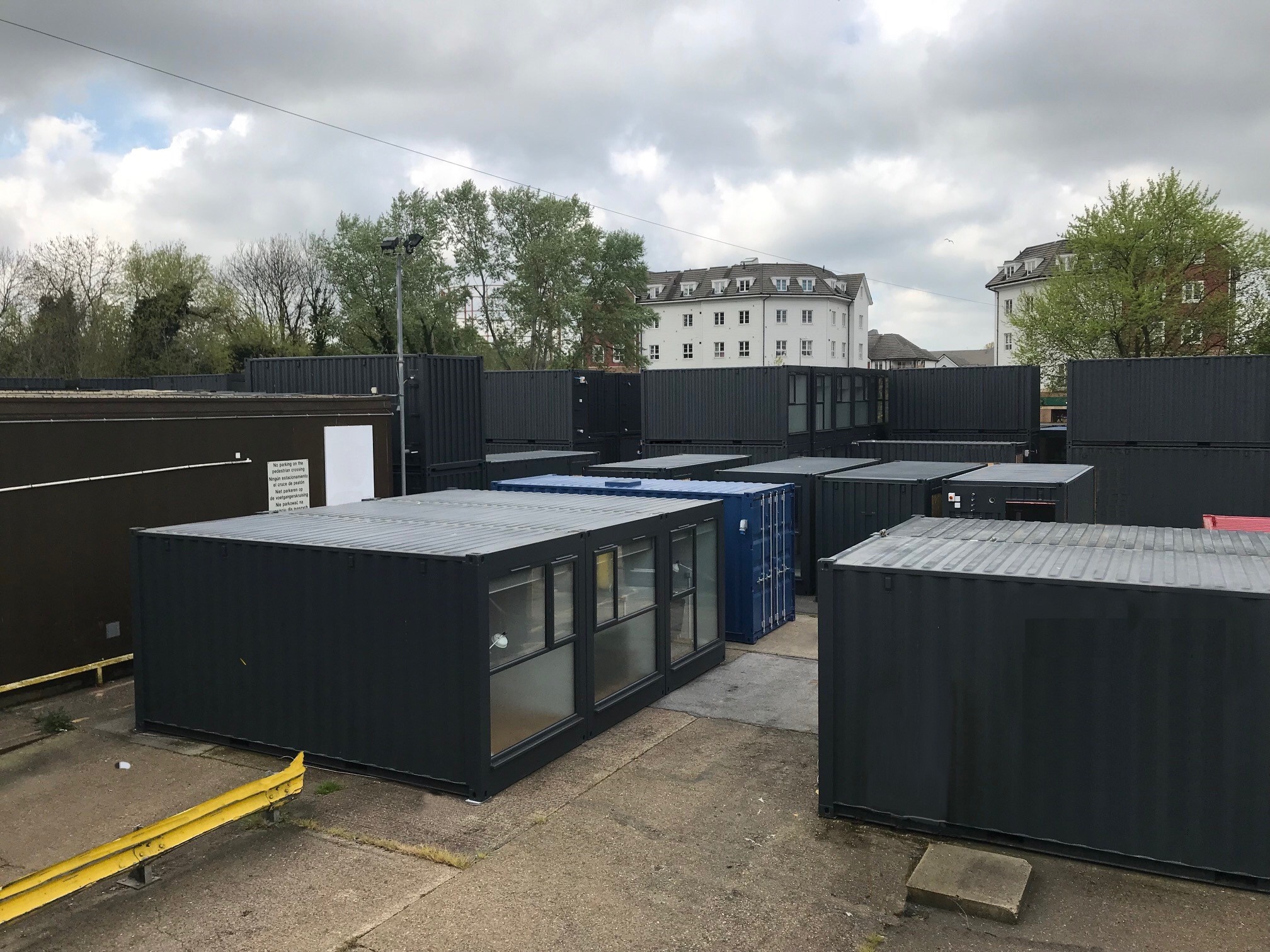How Project Partners are Helping to Create New Homes from Shipping Containers
When Project Partners were asked by Truro-based ISO Spaces to fit out shipping containers they jumped at the opportunity, even though it would mean working in a whole new way.
Project Partner’s Head of Construction, Francesco Caira, said:
“This was our first venture into this exciting concept. However, never scared of a challenge, we investigated the potential benefits to ourselves and the client.
“Our initial task was establishing the most efficient, economic and socially acceptable method of providing the most robust solution. This was due to the locality of the existing production facility being in Cornwall, while we are predominately based in Kent.
“After carrying out a detailed feasibility study, in conjunction with our client, we agreed to find a suitable production facility that was closer to our headquarters and subcontractor pool.”
Subsequently, Project Partners found appropriate premises nearer to their offices in Tonbridge. Having the facility close by allowed them to keep costs down and employ tradespeople living in the area. In fact, the company actively sought them out as a large proportion of its workforce resides close enough to walk or cycle to its premises.
The company also showed consideration to the community. Francesco said:
“Due to the prominent location of the production facility, which is on a main road opposite residential buildings and retail outlets, we consulted with our neighbours and in turn decided to keep the storage of the containers to a level which would not disturb the street scene.
“We carry out a daily perimeter check to ensure that the site is tidy, clean, and does not negatively impact our neighbours.”
For the workforce, there is a Friday afternoon gathering where staff can enjoy some drinks and snacks. The company also reviews progress of the week’s work and everyone is actively encouraged to join in discussions and provide feedback.
Before the factory went into operation, as a test run, Project Partners sent their team to Truro to refit a prototype alongside the existing technical team.
Building Control
What makes these former single-use shipping containers particularly remarkable is that they are fully compliant with all building control regulations.
The containers themselves are imported from China. Initially, they are emptied, quality-checked, assigned to a dwelling, sprayed and finally fitted out. All actions are meticulously documented, photographed and timestamped, which gives the building control officers confidence that high standards are maintained day in and day out.
“The desire to achieve a finished product that complies with building regulations involves an incredible amount of technical knowledge with a unique, detailed and proven production method”, emphasised Francesco.
With the tried and trusted processes in place, the biggest challenge has been getting each subcontractor working effectively in an area the size of an average domestic kitchen. Again, meticulous planning ensures that each trade has a strictly controlled time slot so that the space available to work is not overcrowded.
How has the project compared with working on a traditional construction site?
“On a conventional site you will have a programme which will generally last several weeks,” explained Francesco. “On this project, my dedicated team are delivering nine fully fitted-out and completed containers every week which involves an incredible amount of detailed programming, organisation, materials logistics, contractor co-ordination and transport infrastructure.”
Environmentally Friendly
Recycling shipping containers is in itself an environmentally friendly action – if not turned into homes, the steel would have to be scrapped – but the Project Partners team has gone further. They have carried out extensive discussions with their suppliers to ensure that materials arrive at the factory with the minimum amount of waste, not only in terms of the materials used, but also the packaging. This has enabled the team to reduce waste by 50%. They are also working towards a further reduction by recycling metal and repurposing all insulation materials.”
“We are constantly talking with our suppliers to look at ways of reducing packaging materials and in turn minimise not only the cost of waste removal, but also the volume of waste leaving the site.”
The dwellings are double-glazed and cladded, and because they meet building control regulations, they are as quiet as any other home. If maintained appropriately, they could last for 20, 30 or even 50 years. They will be used as social housing for people in various locations throughout the UK on a temporary basis.
Summing up the experience, Francesco said:
“Something that we have learnt over the past year is that when a challenge is presented to you, you should put aside any pre-conceived ideas, be open-minded and make the best use of the combined strengths of your team to achieve your goal.”



